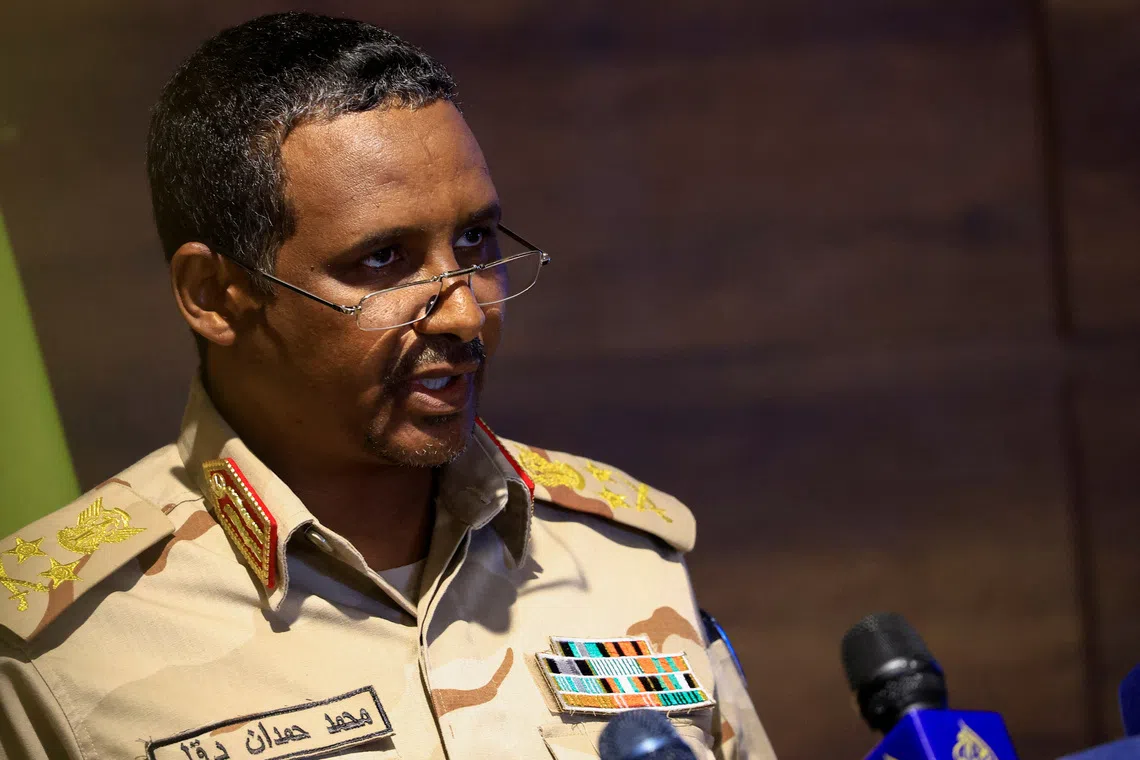Sudan Conflict: RSF Declares 3-Month Humanitarian Ceasefire Amidst Army Rejection & Quad Peace Efforts
 Sudan
Conflict & Diplomacy
Sudan
Conflict & Diplomacy

Sudan's RSF declared a 3-month humanitarian ceasefire after US intervention calls. This follows the army's rejection of a Quad peace plan and accusations agains
Sudan's RSF Announces Unilateral 3-Month Ceasefire Amidst Escalating Conflict
The head of Sudan's Rapid Support Forces (RSF) made a significant announcement on Monday, declaring an immediate, unilateral three-month humanitarian ceasefire. This move comes after U.S. President Donald Trump signaled his intent to intervene in the devastating war that has plunged Sudan into famine and claimed countless lives.
International Pressure and Unilateral Action
General Mohamed Hamdan Dagalo, the commander of the RSF, affirmed that his paramilitary forces would cease hostilities, expressing hope that the "Quad" nations—comprising the United States, the United Arab Emirates, Egypt, and Saudi Arabia—would exert pressure on the opposing side, the Sudanese army, to reciprocate the truce. The Quad had previously put forward a proposal for a similar three-month ceasefire, intended as a precursor to comprehensive peace talks.
However, the RSF's previous engagement with the Quad's initiative was complicated by subsequent actions, including a barrage of drone strikes on army territories. This latest unilateral declaration follows General Abdel Fattah al-Burhan, the Sudanese army chief, publicly rejecting the Quad's proposals just a day prior. Al-Burhan also vocalized strong criticism regarding the inclusion of the United Arab Emirates as a mediator, referencing widespread allegations that the Gulf state has been supplying arms to the RSF – an accusation vehemently denied by the UAE, which asserts its sole objective is to bring an end to the conflict.
Context of Conflict: Territorial Gains and Civilian Harm
The RSF's announcement unfolds against a backdrop of increasing international condemnation over alleged brutal attacks on civilians. These accusations intensified following the RSF's strategic capture of the city of al-Fashir in late October. This victory cemented their control over the Darfur region and has since been followed by an escalation of offensives in the Kordofan region, indicative of the RSF's ambition to seize wider control across Sudan.
Army's Stance and Diplomatic Hurdles
In a parallel address, General al-Burhan strongly dismissed the U.S. peace proposal. He argued that the plan was designed to weaken the Sudanese army while allowing the RSF to consolidate its illegally seized territories. Emphatically, Burhan declared, "No one in Sudan will accept the presence of these rebels or for them to be part of any solution in the future." He also took the opportunity to refute U.S. allegations of Islamist influence within his government.
Responding to al-Burhan's consistent rejection, Reem bint Ebrahim Al Hashimy, the UAE's Minister of State for International Cooperation, issued a statement describing his refusal to accept a ceasefire and the U.S. peace plan as "consistently obstructive behavior."
Humanitarian Crisis and International Sanctions
The conflict in Sudan, which erupted in April 2023 over deep-seated disagreements concerning the integration of the two military factions, has had catastrophic consequences. Beyond plunging the nation into severe famine, it has resulted in tens of thousands of civilian casualties, with a significant portion stemming from ethnically-based bloodshed. Both General Dagalo and General al-Burhan have been subjected to sanctions by the United States, and the RSF itself faces grave accusations of genocide.